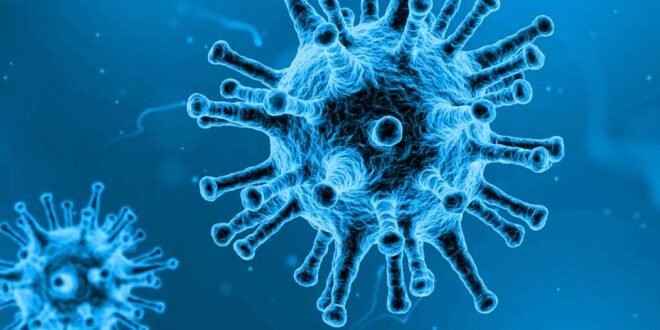Infectious diseases have been among the greatest natural enemies of humans for a very long time. Although much effort has been invested in combatting these diseases, many of them still thrive and cause great morbidity and mortality around the world, especially in sub-Saharan Africa. The ongoing Covid-19 pandemic that has posed major health and economic challenges to humanity for almost one year now has once again demonstrated the importance of studying infectious diseases in order to 1) understand their transmission dynamics, 2) identify more effective ways for their containment, and 3) design better pre-emptive measures against future pandemics. This requires knowledge from different disciplines including epidemiology, public health, mathematics, and statistics. It is in this context that the
Laboratoire de Biomathématiques et d’EstimationsForestières (LABEF,
www.labef-uac.org), Faculty of Agronomic Sciences, University of Abomey-Calavi, in partnership with the Institute for Mathematics, Physics (IMSP,
http://www.imsp-benin.com/home/), and the University of Florida with the support of the Commission for Developing Countries and the International Mathematical Union is organising a one-week international course dedicated to infectious disease and data modelling. During this course, participants will be introduced to basic concepts of infectious diseases, infectious disease data, and dynamic models for infectious diseases. They will receive lectures on various techniques for modelling infectious diseases, associating infectious disease models with data in a meaningful way, and evaluating and comparing models. Furthermore, participants will receive lectures and hand-on exercises on formulating good research questions in infectious disease modelling, carrying out research to answer the questions, drawing conclusions from their research, interpreting and communicating their results to broad audiences. The lectures will be complemented with hands-on computer laboratory sessions in MATLAB, one-one mentoring, and group projects. Side activities will include discussions on searching for and applying for grants and jobs in academia.
Find below key information
•Lecturer: Prof. Calistus Ngonghala Professor of Mathematical biology, Department of Mathematics/Emerging Pathogens Institute/Center for African Studies, University of Florida, USA.
•Date: Monday 15th February to Friday 19th February 2021
•Opening ceremony: Monday 15th February at 8:a.m
•Language of the course: English and French
•Venue: Conference Room of LABEF (Building I, Faculty of Agronomic Sciences, 2nd floor)
•How to participate?Participation is free but upon registration. Registration is online and can be done on the link: https://cutt.ly/Sj6JSaL. Places will be offered on first come first served basis. Only 40 places are available.
•Who can attend?Master and PhD students, post-doc, researchers, lecturers and professional in Epidemiology, Public health, Biostatistics / statistics, pathology, mathematical modelling, agricultural sciences, and related areas.
•Note:Issue of certificate of participation at the end of the course is subject to the payment of XOF1500. Also, please come with a laptop that has MATLAB software. If you do not have it, come to LABEF with your laptop at least three days before the beginning of the course.
•Deadline for registration: Monday 8th February 2021
•Notification: Tuesday 9th February 2021
•For further information:contact.labef@gmail.com or + 229 96 17 27 29 / + 229 95 84 08 00
 LABEF Le Laboratoire de Biomathématiques et d’Estimations Forestières (LABEF)
LABEF Le Laboratoire de Biomathématiques et d’Estimations Forestières (LABEF)

